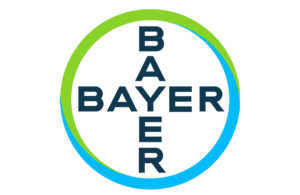 The German multinational pharma and biotech colossus Bayer is taking further steps to ramp up its focus on digital health by launching a new business unit. In 2022, Bayer invested $9.5 million in Woebot Health, an AI-powered behavioral health platform company. In 2020, it launched a venture known as G4A Digital Health Partnership Program to drive digital collaboration in cardiometabolic and renal disease, oncology and women’s health.
The German multinational pharma and biotech colossus Bayer is taking further steps to ramp up its focus on digital health by launching a new business unit. In 2022, Bayer invested $9.5 million in Woebot Health, an AI-powered behavioral health platform company. In 2020, it launched a venture known as G4A Digital Health Partnership Program to drive digital collaboration in cardiometabolic and renal disease, oncology and women’s health.
This new unit, the Bayer Precision Health group, plans to focus on identifying digital and digital-supported consumer healthcare opportunities. The group seeks to create new precision health products based on real-world evidence and digital technologies.
Bayer’s new digital health unit has a priority mission. It seeks to cultivate pioneering digital technologies. The goal? Empower individuals to make more informed health choices. It aims to accomplish that objective by uncovering novel delivery mechanisms, as our sister site MassDevice reported.
Sanofi, Novartis and Boehringer Ingelheim and others have forged pharma-digital health alliances
At first blush, Bayer’s digital foray may seem unrelated to drug discovery and development. But the news marks a trend of drug makers partnering with digital health companies over the years. Sanofi, for instance, is exploring the use of digital therapeutics to improve patient outcomes. Other Big Pharma players like Boehringer Ingelheim and Novartis are also exploring digital therapeutics.
The trend of digital-based alliances in pharma is not new. Daichii-Sankyo announced a 2015 alliance with Partners Healthcare related to remote monitoring of atrial fibrillation. That same year, GSK entered into a collaboration with Apple on its health monitoring platform ResearchKit. In 2018, Otsuka announced an alliance with Proteus Digital Health to launch a medication incorporating an ingestible sensor. The latter company filed for bankruptcy, but Otsuka acquired its assets in 2020. The connected inhaler company Propeller has forged partnerships with drug companies with GSK, Aptar and Boehringer Ingelheim related to treating chronic obstructive pulmonary disease (COPD) and asthma from 2016 to 2018.
Other examples include Eisai’s partnership with Voluntis to support cancer patients built on the latter’s eThereum platform. In addition, Otsuka Pharmaceuticals and Click Therapeutics are jointly announced in 2021 they were conducting a remote clinical trial being using Verily’s Project Baseline platform. Finally, Biogen Inc. and MedRhythms joined forces to develop an investigational prescription digital therapeutic for gait deficits in multiple sclerosis.
Not all partnerships have been smooth. Novartis and Pear scrapped a large deal to commercialize the latter’s apps to treat opioid use disorder and substance use disorder.
Bayer’s digital health focus could enhance drug development
Digital health technology and precision medicine can enhance drug development efforts, and Bayer’s efforts are emblematic of this trend. Digital health tools can be powerful tools to curate patient data, and can support the development of personalized therapies. Such tools can also help improve outcomes, as a large portion of social determinants of health are behavior-based.
Additionally, digital health tools can harvest data to yield insights into patient behavior and disease progression, assisting in the design of clinical trials and real-world evidence studies.
In a press release, Bayer noted that more than 80% of consumers globally would prefer greater healthcare personalization. David Evendon-Challis, Bayer’s Chief Scientific Officer, pointed out that digital tools enable consumers to make informed health choices by supporting self-care and enabling individuals to have a deeper understanding of their individual health needs.
Bayer’s focus includes digital therapeutics and AI symptom assessment
As part of its digital health strategy, Bayer is considering the development of digital health products, potentially including digital therapeutics. These are software-driven interventions designed to prevent, manage or treat a range of physical, mental and behavioral conditions. Given their capacity to supplement or even replace pharmaceuticals, digital therapeutics hold significant relevance to the pharmaceutical research community.
In 2022, Bayer announced pilot projects with Ada Health, featuring AI-based symptom assessment, highlighting the potential of AI in digital health. The use of AI can dramatically accelerate pharmaceutical research by identifying disease patterns and potential drug targets.
In addition, Bayer recently launched a heart risk assessment powered by Huma, a London-based healthcare technology company. The digital tool provides a highly accurate personal risk assessment for developing cardiovascular disease without blood tests or physical examination.
In recent years, Bayer has also ramped up its investments in cell and gene therapy and in 2020 unveiled an AI drug delivery partnership with Exscientia.
While Bayer’s digital initiatives appear to already be bearing fruit, the company anticipates launching more digitally-focused health technologies later this year.